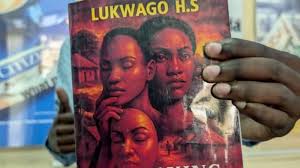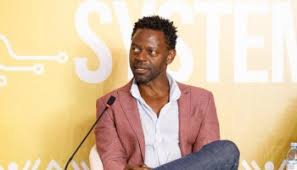When Lukwago picks up his pen, he is not just writing stories — he is writing his truth. What began as a way to express teenage thoughts has grown into a mission to inspire others facing the same hardships he once endured.
“For me, writing started as an escape,” he says softly. “Now, it has become my way of helping others see hope when life feels heavy.”
Born and raised in Dar es Salaam, Lukwago’s early life was far from easy. His family faced financial challenges, and at times he had to pause his education to help support them. But even in those difficult moments, he found comfort in words.
He began writing short poems and stories while still in secondary school, often scribbling verses on the back of his notebooks. His teachers noticed his talent and encouraged him to write more. “That’s when I realized I could turn my pain into power,” he recalls.
But after finishing school, life took a harder turn. Lukwago worked small jobs — as a shop assistant, tutor, and later as a boda boda rider — just to make ends meet. The dream of becoming a writer seemed to fade.
In 2020, after facing a period of unemployment and depression, Lukwago decided to use writing as therapy. He began publishing reflections and short essays on social media, addressing issues many young Tanzanians could relate to — joblessness, mental health, love, and self-worth.
To his surprise, his words began to resonate. “People would message me saying, ‘You wrote exactly what I’m feeling,’” he says. “That made me realize that my story was not mine alone — it was the story of many others.”
His posts soon turned into a blog called “Letters to My Younger Self”, where he shares motivational pieces drawn from his personal journey.
Lukwago’s growing readership has encouraged him to tackle social issues head-on. In his recent writings, he focuses on topics like youth unemployment, gender equality, and the importance of mental health awareness.
“I want young people to know that it’s okay to struggle,” he explains. “But it’s not okay to give up. We must keep finding ways to rise, even when life feels unfair.”
His storytelling mixes realism with poetry, often weaving everyday Tanzanian life into powerful lessons. “I write in simple words so that anyone, whether a student or a boda boda driver, can see themselves in my stories,” he says.
In 2024, Lukwago self-published his first book, “Shadows and Sunlight,” a collection of essays and poems about overcoming hardship. It quickly gained attention online for its honesty and relatability.
Local schools and youth groups have since invited him to speak at events, where he encourages young people to use their talents to express themselves and build confidence.
“Not everyone can write,” he says, “but everyone has a story to tell — whether through music, art, or even conversation.”
Now 29, Lukwago dreams of establishing a youth writing and mental health initiative, helping young Tanzanians find healing through storytelling. He believes that creative expression can break stigma and empower communities.
“Writing saved me,” he reflects. “It gave me back my voice. And now, I want to use that voice to lift others who are still searching for theirs.”



